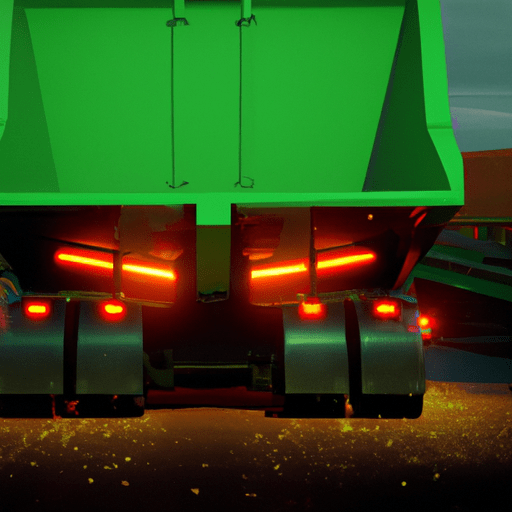-
Table of Contents
Introduction
Selecting the right dump trailer for your business is a crucial decision that can significantly impact your operations, efficiency, and profitability. With a wide range of options available in the market, it is essential to consider factors such as size, capacity, material, and functionality to ensure that you invest in a dump trailer that meets your specific needs and requirements. This guide will provide you with valuable insights and tips on how to choose the perfect dump trailer for your business, enabling you to make an informed decision and enhance your overall productivity.
Choosing the Right Dump Trailer for Your Business: A Comprehensive Selection Guide
Choosing the right dump trailer for your business can be a daunting task, especially with the wide variety of options available in the market. However, making the right choice is crucial for the success and efficiency of your operations. In this comprehensive selection guide, we will walk you through the key factors to consider when selecting the perfect dump trailer for your business.
First and foremost, it is essential to determine the primary purpose of the dump trailer. This will help you narrow down your options and focus on the features that are most relevant to your needs. For instance, if you plan to use the trailer for hauling heavy construction materials, you will need a heavy-duty trailer with a high weight capacity. On the other hand, if you intend to use it for landscaping or agricultural purposes, a smaller, more maneuverable trailer may be more suitable.
Once you have a clear understanding of your needs, it’s time to consider the size of the dump trailer. The size of the trailer will directly impact its weight capacity, maneuverability, and overall functionality. It is important to strike a balance between these factors to ensure that the trailer is suitable for your specific requirements. For example, a larger trailer may have a higher weight capacity, but it may also be more difficult to maneuver in tight spaces. Conversely, a smaller trailer may be easier to handle, but it may not be able to carry as much weight.
Another critical factor to consider is the type of dump mechanism that the trailer uses. There are two main types of dump mechanisms: hydraulic and electric. Hydraulic dump trailers use a hydraulic cylinder to lift the bed, while electric dump trailers use an electric motor to power a mechanical lift system. Both systems have their pros and cons, so it’s essential to weigh these factors carefully. Hydraulic systems tend to be more powerful and faster, making them ideal for heavy-duty applications. However, they can also be more expensive and require more maintenance. Electric systems, on the other hand, are generally more affordable and require less maintenance, but they may not be as powerful or fast as their hydraulic counterparts.
The construction material of the dump trailer is another important aspect to consider. The most common materials used for dump trailers are steel and aluminum. Steel trailers are typically more durable and can handle heavier loads, but they are also heavier and more prone to rust. Aluminum trailers are lighter and more resistant to corrosion, but they may not be as strong as steel trailers. It’s essential to weigh the pros and cons of each material and consider factors such as the weight capacity, durability, and maintenance requirements when making your decision.
Finally, it’s crucial to consider the overall quality and reputation of the dump trailer manufacturer. A well-built trailer from a reputable manufacturer will likely last longer and require less maintenance than a poorly constructed trailer from an unknown brand. Research the various manufacturers and read customer reviews to get a sense of the quality and reliability of their products. Additionally, consider factors such as warranty coverage and customer support when making your decision.
In conclusion, choosing the right dump trailer for your business involves carefully considering factors such as the primary purpose, size, dump mechanism, construction material, and manufacturer reputation. By taking the time to evaluate these factors and weigh the pros and cons of each option, you can make an informed decision that will help ensure the success and efficiency of your operations.
Conclusion
In conclusion, choosing the right dump trailer for your business involves considering factors such as the type of materials to be transported, the required capacity, the towing vehicle’s compatibility, the trailer’s construction and durability, and the budget. By carefully evaluating these factors and comparing different models, businesses can make an informed decision and select a dump trailer that best suits their needs and enhances their operational efficiency.


